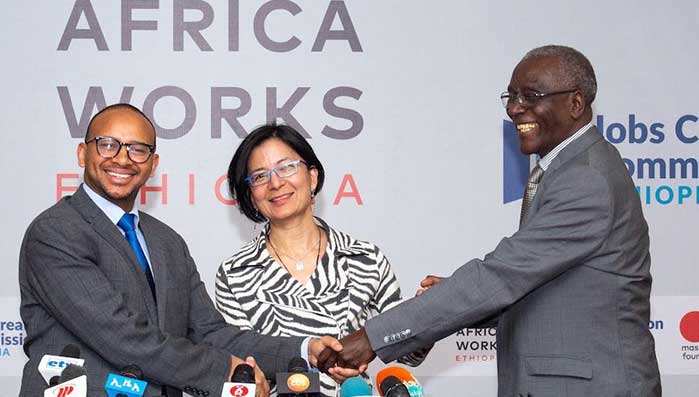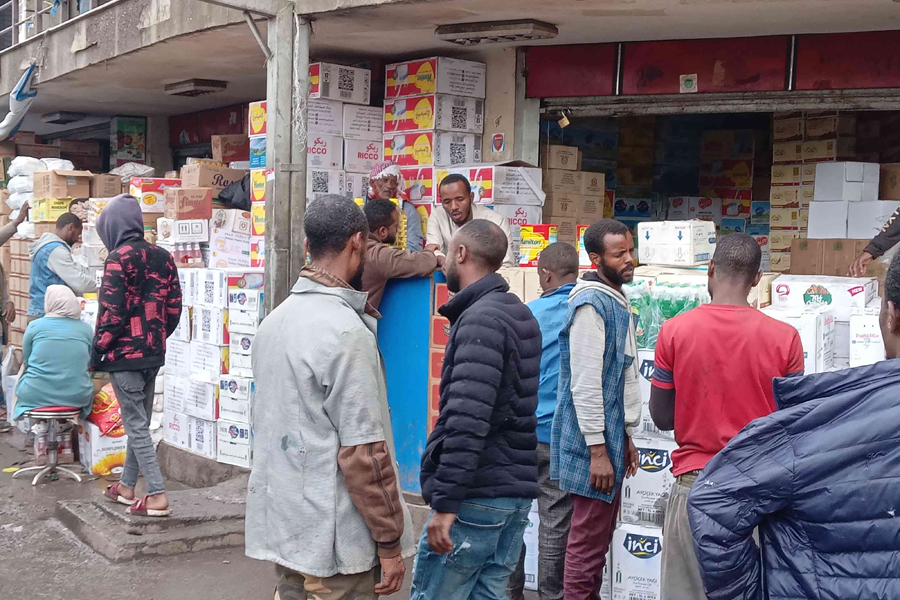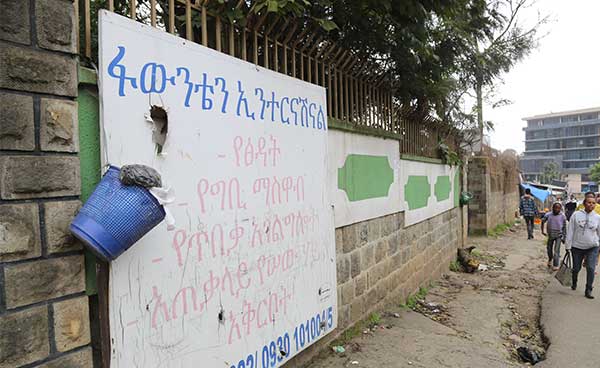
Life Matters | Jul 13,2024
Mar 6 , 2021
By HAWI DADHI
 Dubbed Enhancing Job Opportunities for Youth & Women (EnJOY), the project will also develop 75 rural one-stop-job centres, which facilitate employment and provide training and information for job seekers.
Dubbed Enhancing Job Opportunities for Youth & Women (EnJOY), the project will also develop 75 rural one-stop-job centres, which facilitate employment and provide training and information for job seekers. A joint effort of four development partners launched an 8.9-million-euro project to create jobs across three regional states in three and a half years. Funded by the European Union, the project will be implemented in eight districts across Oromia, Southern and Sidama regional states.
Dubbed Enhancing Job Opportunities for Youth & Women (EnJOY), the project will also develop 75 rural one-stop-job centres, which facilitate employment and provide training and information for job seekers. West Arsi, East Shewa, West Wollega, East Wollega in Oromia; Dale Wereda in Sidama; and Gedeo, Silte, and Wolaita are the implementation sites.
Caritas Switzerland, Volontariato Internazionale Per Lo Sviluppo (VIS), VITA, and the Ethiopian Catholic Church Social & Development Commission are the implementers of the project, which mainly targets youth, women, and internally-displaced people. It is planning to develop 95 one-stop-job centres. Twenty of these centres already exist and will be receiving technical and material support.
The project will also work on capacity development of Small & Medium Enterprises (SMEs) to be attained through business development training and creating produce-to-market linkages through the findings of a labour market assessment currently being conducted. Establishing a job portal and capacity building of TVET centres by equipping them to deliver training programmes are also among the aims of the project.
The job development goal is to be implemented as a pilot project through capacity building and improvement on governmental job creation structures, according to Sarah Kohls, project manager. She added that a monitory, evaluation and accountability tool will be developed to evaluate and document lessons from the project for later use.
"The structure to implement the project has already been set up," she said.
The partners have already deployed professionals in the implementation areas who are currently conducting research, including a baseline study, a labour market study, and a feasibility study on migration, which is due to be completed next month.
The Ethiopian Catholic Church Social & Development Commission, which was founded in 1965, got involved in the project following a call for proposals by the EU, which finances 16 regional and 12 national projects on job creation. The Commission then identified three collaborators and designed the project, according to Kinfu Guta, a food security and EU-funded projects coordinator at the organisation.
Caritas Switzerland, which started out in Ethiopia with an emergency response project and later expanded into humanitarian development, was chosen to be the lead organisation upon the consensus of the participants, according to Kinfu.
Vita, a long-time partner of the Commission, is an Irish-based international development charity founded in 1989 and originally named Refuge Trust International. Vita's programme areas revolve around agricultural climate resilience, job creation, establishing community-based green zones, and enterprise development.
The Jobs Creation Commission will sign a memorandum of understanding with Caritas Switzerland so as to allow the organisation to use its guidelines and modules, which will be customised and used by the EnJOY project, according to Sarah.
Despite numerous projects in urban and rural job creation, the unemployment rate in the country remains very high at 29pc.
During a panel discussion at the launch of the project, regional job creation directors lamented that there are major structural and mindset challenges that have hindered advancements in securing rural employment.
The EU has identified key components that are crucial for success, according to Teriessa Jalleta, programme manager of the green deal team from the Delegation of the European Union to Ethiopia.
From lessons learned during the implementation of a similar project, the need for short-term skills training programmes, robust monitoring, an accountability mechanism, public-private partnerships, and the enhancement of the attitudes of job seekers were among the lessons, according to Teriessa.
PUBLISHED ON
Mar 06,2021 [ VOL
21 , NO
1088]

Life Matters | Jul 13,2024

Fortune News | Nov 02,2019

Commentaries | Jun 12,2021

Fortune News | Sep 19,2020

Fortune News | Aug 04,2024

Fortune News | Sep 10,2023

Fortune News | Jan 16,2021

Featured | Sep 21,2019

Radar | Dec 28,2019

Featured | Sep 11,2020

Dec 22 , 2024 . By TIZITA SHEWAFERAW
Charged with transforming colossal state-owned enterprises into modern and competitiv...

Aug 18 , 2024 . By AKSAH ITALO
Although predictable Yonas Zerihun's job in the ride-hailing service is not immune to...

Jul 28 , 2024 . By TIZITA SHEWAFERAW
Unhabitual, perhaps too many, Samuel Gebreyohannes, 38, used to occasionally enjoy a couple of beers at breakfast. However, he recently swit...

Jul 13 , 2024 . By AKSAH ITALO
Investors who rely on tractors, trucks, and field vehicles for commuting, transporting commodities, and f...

Jul 12 , 2025
Political leaders and their policy advisors often promise great leaps forward, yet th...

Jul 5 , 2025
Six years ago, Ethiopia was the darling of international liberal commentators. A year...

Jun 28 , 2025
Meseret Damtie, the assertive auditor general, has never been shy about naming names...

Jun 21 , 2025
A well-worn adage says, “Budget is not destiny, but it is direction.” Examining t...